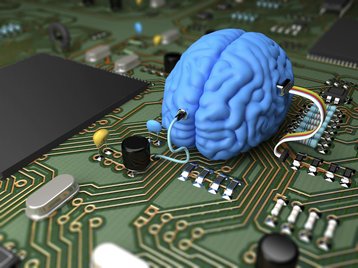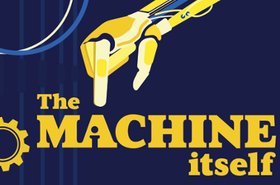When identifying the top 10 strategic technology trends for 2018, Gartner analysts predicted that Artificial Intelligence (AI), or intelligent apps and analytics, would become a major industry player.
In fact, Gartner foresees almost every app, application and service incorporating some level of AI in the next few years. In the rapidly growing and changing data center industry landscape, this intelligent technological innovation can lead to any number of beneficial uses and deployment strategies. So, with such wide-ranging applications, what does AI proliferation really mean for data centers?
The rise of AI
Initially, AI deployments mostly mean that data centers can expect an influx of workloads to handle the proliferation of AI technologies, such as machine learning. Data centers will likely grow in importance and become central to the operation of these burgeoning technologies.
In addition to favorable business implications, AI applications will also have a substantial and positive impact on the health of data centers themselves.
A future with the benefits of AI being fully expressed sees data centers anchored in artificially intelligent processes. Everything from the monitoring and controlling of the facility’s infrastructure to the management of applications, cooling, power, storage and beyond has the opportunity to be maintained and adjusted seamlessly in real time. These full AI data center deployments, when completely realized, will usher in a new era of optimal efficiency, productivity and reliability.
One benefit of AI applications is their ability to substantially decrease the risk of downtime. Currently, downtime is one of the costliest occurrences, not only for data center operators, but for their clients as well. The International Data Corporation (IDC) reports that the average cost of a failure can reach anywhere from $100,000 to $1 million per hour of downtime. An infrastructure or critical application failure can acutely damage the reputation and business practices of a data center client, not to mention any residual fallout for the data center’s role as key partner to their client. In order to avoid these harmful events, AI represents a promising step toward maintaining 100 percent uptime.
Machine learning, as a subset of AI, empowers businesses by giving their computer systems the ability to “learn.” Through algorithms that allow systems to recognize patterns and automatically build analytical models, computer systems in data centers can now be augmented with the ability to make critical decisions with less human intervention. With this type of AI boasting such encouraging benefits, Deloitte Global predicted the implementation of 800,000 machine learning chips across global data centers this year.
Root Data Center employs AI software to augment their team of skilled technicians and engineers, using the software to help individually monitor high numbers of generators. This added monitoring is used preventively as well as during the critical generator monitoring in the event of a potential utility outage. Without AI, maintaining this level of careful auditory vigilance would be a near impossibility with upwards of 50 generators to keep constant watch over while utility is restored.
The software in use, developed by Litbit, provides an additional layer of automated surveillance to serve as an extension of the facility’s technical support team. The Litbit sensors track variables to sound patterns to potentially identify and solve an issue or even predict failures before they have the chance to cause downtime. The AI’s more minute sensory experience, along with its application of predictive modeling, allows our team to have eyes and ears in more places at once. While human senses may not be able to pick up the small noises that could indicate issues, the software can detect them and predict the need for preventative maintenance or immediate attention using its learned algorithms.
These types of groundbreaking deployments represent the beginning of a new wave of AI implementations and practical uses. While widespread and thorough management of data center operations through Artificial Intelligence may still be years out, current implementations like those that support uptime are already proving beneficial for data centers and their clients. With more reliable and easily monitored operations, data center users can rest easier knowing that their facilities can follow stringent compliance mandates for uptime and efficiency.
Overall, the horizon is filled with opportunities for the data center in this new age of AI. As data centers take on a growing degree of importance to daily life and expand in size and complexity, AI promises to simplify critical day-to-day workings for the facilities in which it’s deployed.
Applications may look different for every data center, but the value of these integrations will remain high as artificial intelligence becomes central to smart growth and innovation.





